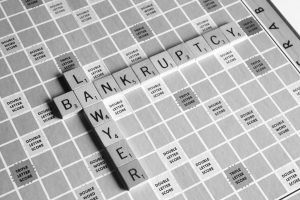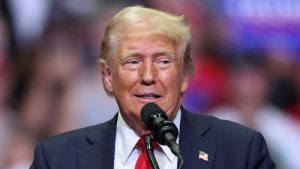How Liz Truss deals with serious economic challenges will define her tenancy in Number 10
There is a tradition, whenever a new prime minister is anointed, for news organisations like ours to publish a piece laying out the main economic challenges facing the latest occupant of Downing Street.

There is a tradition, whenever a new prime minister is anointed, for news organisations like ours to publish a piece laying out the main economic challenges facing the latest occupant of Downing Street.
In this case, it’s rather hard to know where to start.
There’s the inflation rate, higher in the UK than in any other G7 nation. There’s the fact that energy prices are expected to rise even higher in the coming months, squeezing households’ incomes.
Cabinet resignations begin as Truss considers top team – live updates
There’s the fact that once you adjust for all of this we’re probably going to see our real earnings – probably the most comprehensive measure of “pound in your pocket” feelgood factor – drop down to the level they were at in 2003.
Think about that for a moment: two entire decades in which our standard of living has not progressed – or rather has progressed and then repeatedly collapsed.
Then there’s the single best measure of investor’s confidence in a given country: the currency.
After all, an exchange rate is, among other things, a yardstick of how much appetite there is to put money into a given country.
When it goes up, that often means more money going into the country, or vice versa if it’s going down. Here the story is similarly worrying.
The scale of the weakness depends on whose figures you’re using: the Bank of England’s measure of sterling strength suggests it’s been dropping recently; another index compiled by financial data company Bloomberg suggests it’s now down at the weakest it’s been since comparable records began – save for a brief jolt during the market chaos around the beginning of the pandemic.
Now there is no point in getting carried away. The pound is not exactly crashing; indeed, it’s not all that far from where it was after the EU referendum – the last time it truly jolted downwards from one level to another.
It’s not impossible it recovers in the coming months, dependent on Liz Truss‘s first weeks as prime minister, and how investors respond.
It’s possible her plan to cut taxes and increase borrowing while simultaneously providing enormous fiscal support for energy bills might not cause a runaway increase in inflation. Though most economists are sceptical.
Even so, in some ways the gradual weakening we have seen in recent weeks is still unsettling.
Read more:
What will Truss do to ease cost of living crisis for households and businesses?
Iceland and Morrisons have put up prices the most – cost of living latest
New PM, same problems – the day one challenges facing Liz Truss
For if there is one thing that really decides the fate of new prime ministers – more than poll ratings or party support or indeed whether GDP is going up or down – it is the support of investors.
I know this sounds paradoxical: surely our leaders answer to their voters, not investors, right?
Yet if market confidence evaporates, then they, and we, would end up in real trouble. This country, like it or not, relies on what Mark Carney once called the “kindness of strangers” – those faceless international investors who finance our enormous budget and current account deficits.
That’s fine as long as they’re happy to keep on putting money into the UK, but much less fine if they suddenly change their minds.
All of which explains why the likely new chancellor, Kwasi Kwarteng, wrote in the investors’ in-house journal, the Financial Times, today that the new administration would act in a “fiscally responsible way”.
As an economic historian, he is well aware that Britain’s post-war economic disease has been repeated sterling crises: from 1931 to 1949 to 1967 and 1992, there have been recurrent episodes when the country has lost the faith of international investors and been forced into embarrassing and painful economic adjustments.
The current challenges facing Ms Truss’s administration are about as serious as any her predecessors faced. How she deals with them will define her tenancy in Number 10.



